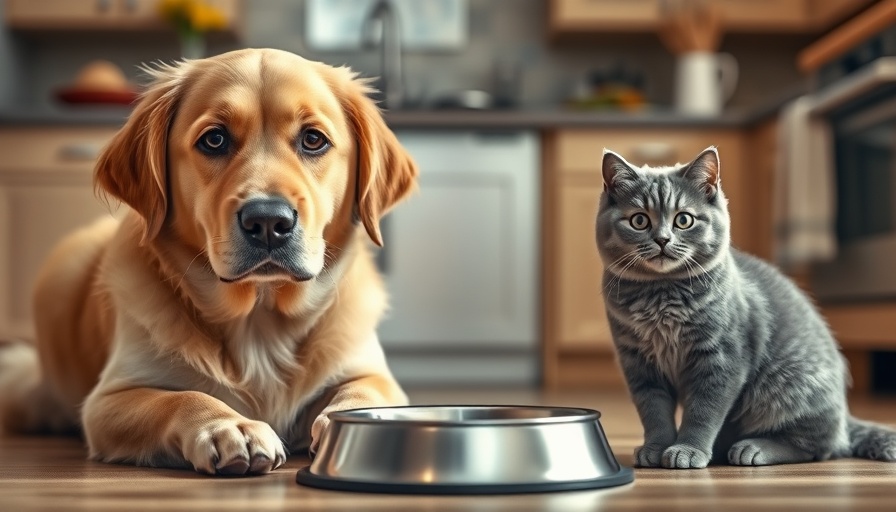
Understanding Species-Specific Diets for Your Pets
When you share your home with both cats and dogs, you may find yourself in a situation where food runs low. In such moments, many pet owners contemplate a quick fix: swapping diets. However, it’s essential to recognize that this practice, although seemingly harmless, may lead to adverse effects on your pets' health if it becomes a regular event.
The Nutritional Needs of Cats vs. Dogs
Dogs and cats, both classified as carnivores, have unique dietary requirements that must be met to ensure optimal health. Dogs are scavenging carnivores, able to adapt to various food sources, while cats are obligate carnivores. This means that felines require a meat-based diet to thrive, with specific nutrients only found in animal products.
According to veterinarian Dr. Megan Keller, a small bite of dog food may not harm your cat, but it will not provide them with necessary nutrients like taurine, which is essential for heart and eye health. Similarly, while a dog may happily indulge in cat food, the rich protein content can lead to digestive upset and obesity due to its high caloric density.
Risks of Mixing Pet Diets
Regularly allowing one pet to eat the other’s food poses serious risks. For example, a cat fed dog food may face malnutrition over time, while excessive consumption of cat food can cause kidney issues in dogs. Understanding these risks helps to prevent unnecessary health issues.
Moreover, cats are often more finicky eaters than dogs, leading some dog owners to worry when their pooch shows interest in the feline’s food. While it can appear harmless in the moment, this behavior could disrupt their eating habits in the long run, contributing to health issues.
Best Practices for Mixed Pet Households
What can pet owners do to ensure that their furry friends remain healthy? Here are some best practices:
- Feed pets in separate areas. This minimizes the chance of food swapping, allowing each species to stick to its respective diet.
- Experiment with species-appropriate safe human foods. For immediate relief, consider offering your pets carefully selected human foods that are safe and nutritious until you can restock their primary diet. Options such as cooked chicken or pumpkin may appeal to both cats and dogs.
- Maintain consistent feeding schedules. Providing meals at set times not only regulates their diets but also helps prevent scavenging behavior from either pet.
The Importance of Quality Nutrition for Pet Health
Ensuring your pets receive their specific nutritional requirements will help them flourish and live longer, healthier lives. While sharing is a common theme in warm households, diet is one aspect best kept individualized. Knowledge about your pet's nutritional needs empowers you to make informed choices about their diets.
Emotional Well-Being and Bonding
Caring for animals goes beyond feeding; it fosters a safe, nurturing environment. By understanding their dietary needs and respecting their individuality, you strengthen the bond with both your dog and cat. Observing their reactions to different foods or meals can lead to delightful shared experiences that strengthen your relationship with them.
Ultimately, handling the needs of both dogs and cats requires attention and dedication. Ensure you provide species-specific diets combined with love and care, and your pets will thrive as cherished members of your family. With proper understanding, you can make the most of a household filled with both dogs and cats.
Take action today by reviewing your pet’s diet and making adjustments to ensure they are getting the right nutrition. Your furry family members will thank you!
 Add Row
Add Row  Add
Add 




 Add Row
Add Row 


 Add
Add
Write A Comment